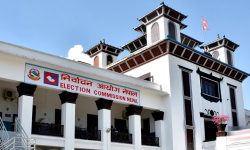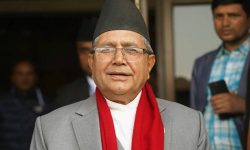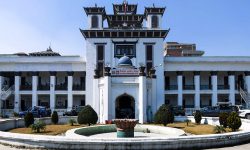Why did China attack India?
A common trend is found in our country that China deceived Nehru and our country by attacking our country, and the invasion took place due to the rivers of Tibet.
If we analyze the actions taken by Nehru against China, we will then find the fact that Nehru made his efforts to surround China and also tried not to allow Tibet which is regarded as a source of water in South East Asia & Indian Sub-Continent, to be under the influence of China. And Nehru also attempted with his policy that China might not be able to occupy “Old Silk Route “leading to the regions of Central Asia. In this way Nehru tried his best to stop China from its aggressive policies being chalked out by it against India. For instance, when Mukti Sena (Liberation Army) of Nepali Congress attacked Nepal in 1950, he (Nehru) helped Rana Ruler. He made a treaty with Nepal, Bhutan and Kingdom of Sikkim, and on the other hand Indian Army erected 100 posts at China International Border adjoining to Nepal, Bhutan, and Sikkim areas during the duration between the years starting from 1951 to 1954. The post of Indian Army at Lipulekh Pass had been built up in 1954. On the request of the King of Nepal in 1968, we (Indian Army) removed Posts from Nepal China Border but didn’t vacate the Post at Lipulekh.
On the other side, Nehru signed treaties with Bhutan and Kingdom of Sikkim that their foreign policies and Defence will be handled by Indians, He further brought the reality to their notice that in Nepal up to 1963 – 64, his one Indian diplomat would participate in each and every their cabinet meeting as an observer.
P.M. Jigru Dorji was assassinated in Bhutan in the month of April, 1964. Some of the leaders tried to promote Military Coup, which was suppressed by India. In the same pace, SSC in Sikkim launched a Disobedient Agitation, and for controlling or stopping it, a treaty was made in 1950.
The agitation, known as Under Ground Armed Agitation being launched by Khampa Rebels, was organized by our Indian Army from Kalimpong, Kingdom of Sikkim (Now Darjeeling District), and this work had been under process since 1951.
The first time Nehru went to China in October, 1954, and since the same time, he had been very close to Soviet Union. Nehru made his first visit to Moscow in June 1955. The first Indian Ambassador to Soviet Union was Vijay Laxmi Pandit, the sister of Nehru.
In the light of the systematic events mentioned above, it seems Nehru didn’t taste any delusion and deception from any side but his perception was not right with views that Chinese would not have a full flash attack on his country.
A rumor once propagated against Nehru is that he made China a member of Security Council when the same offer was given to India in 1960, but this propaganda was without confirmation. The exact information why he does like that, its authenticity can be found out when the Ministry of External Affairs will send the concerned files to National Archives. Any of P.M’s action is analyzed on the basis of MOM which his officer prepares. I happened to study Nehrupersonalities very closely in details.
In my opinion, he was ambitious. He wished from the core of his heart to establish a NonAlignment Movement (NAM) without involving America and Russia. On July 19, 1956, a joint declaration was signed on mutual grounds by Nehru, Sukarno (Indonesia), Jamal Abdul Nassir (Egypt) and Joseph Broz Tito (Yugoslavia) on the soil of Brijuni Island where UNO was formed in 1945, and at that time the members of UNO were 51 only. The first conference of Non-Alignment Movement (NAM) was convened on Sep.1, 1961, in which 25 nations participated in compare to 110 countries’ strength of UNO membership.
Today our youngsters are the asset for tomorrow but they don’t know the world was divided into two major blocks, 1- Russia (WARSA, Members from 08 countries), 2- USA (NATO, Members from 12 countries). However, it was Nehru’s foreign policy on the basis of which a third group emerged on world-horizon. It indicates how strongly Nehru had his grip on international foreign politics.
We reach the conclusion in the light of the conversation between Mao Zedong and Khrushev that Mao regarded NAM and its leaders as Bourgie. He was of the opinion that NAM including its main leader Pt. Nehru is a hurdle for expansion of communism.
Pandit Nehru had organized the first Inter-Asia Conference in March 1947, at New Delhi, while the 2nd conference was organized in Indonesia from April 18 – 24, 1955. The purpose behind this conference was none but to oppose imperialist tendency as well as to enhance influences of India in South East Asia.
In December, 1948, the Dutch Govt. had attacked Indonesia. Then Nehru contributed a lot in the world to create a conducive atmosphere against this attack. That’s why a resolution was passed on behalf of the Security Council, and consequently the Dutch Army had to return back.
On the other hand, Nehru sent Biju Patnaik to Indonesia. His purpose was to train the pilots of the Indonesian Army. The son of Biju Patnaik is Naveen Patnaik and he is now the Chief Minister of Orissa. Indonesia government has provided with honorary citizenship to Biju Patnaik and his family, as well as Biju Patnaik was also blessed with the award of “Bhoomi Putra”.
On request of the P.M. of Ghana, Kwame Nkrumah, R.N. Kao was sent there to set up their Intelligence Organization.
China didn’t feel happy to observe the international role of Indian Army. How the Indian Army got glorifications on the mass scale under its foreign policy, and how better the relationship between Nehru and Army is, of course, a focal point to be considered, but anyway China was angry chiefly it was so because of the role of Indian Army in Vietnam, Laos and Cambodia.
Therefore we can say that: “Sending Armies to Nepal, Bhutan and Sikkim to guard their international borders with China, giving asylum to Dalai Lama, helping Khampa rebels, implementing forward policy etc” might be the main reasons of the depressions of China. Also, the matter lies in the fact that India internationally glorified its sublime status what China wanted for itself, thus to be escaped from such a heinous insult, China attacked India.
-Deepak Saxena
Saxena is a Psephologist and a Journalist.








प्रतिक्रिया